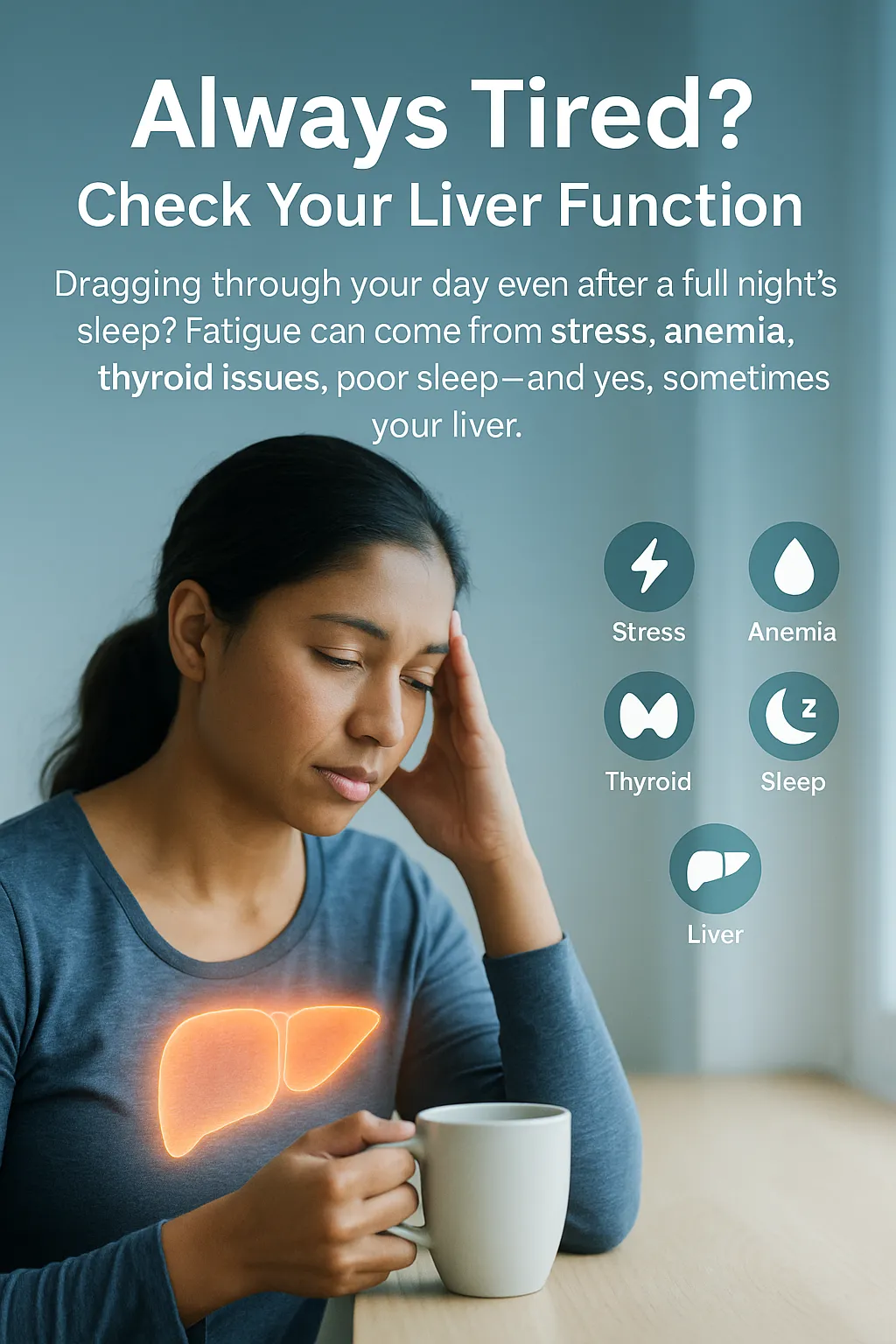
Seeing Is Believing: The Benefits of Ultrasound for Patients and Providers

Feeling Tired All the Time? Check Your Liver Function
Feeling Tired All the Time? Check Your Liver Function
Dragging through your day even after a full night’s sleep? Fatigue can come from stress, anemia, thyroid issues, poor sleep—and yes, sometimes your liver. Your liver quietly handles energy balance, detox, and digestion. When it’s overworked or inflamed, tiredness can be one of the first clues.

How the liver links to fatigue
Liver conditions like viral hepatitis, fatty liver disease, or bile flow problems can show up as “I’m just exhausted” long before dramatic symptoms appear. For example, fatigue is a common symptom in acute hepatitis B, alongside nausea, dark urine, or jaundice. Many people are asymptomatic, which is why testing matters.
Nonalcoholic fatty liver disease (also called MASLD) often has few or no obvious symptoms, but fatigue is frequently reported—especially as disease advances.
First step: simple blood tests (LFTs)
Your clinician may start with liver function (and injury) tests, typically including:
ALT & AST (enzymes linked to liver cell injury)
ALP & GGT (often rise when bile flow is blocked)
Bilirubin, albumin, and prothrombin time/INR (reflect bile handling and liver synthetic function)

Abnormal results don’t diagnose a specific disease, but they point to what to look for next—for example, whether the pattern suggests inflammation in the liver cells (hepatocellular) or a bile-duct issue (cholestatic). Imaging choices then follow evidence-based pathways.
Where ultrasound fits
Abdominal ultrasound is a safe, radiation-free way to look at the liver and bile ducts. It helps your provider:
Check for fatty change (steatosis)
Look for bile duct dilation that could suggest obstruction
Assess liver size/texture and nearby structures
Ultrasound is widely used in the work-up of abnormal liver tests and is considered first-line for suspected biliary obstruction (a classic cause of jaundice and dark urine). If obstruction is seen or suspected, other imaging (like MRI/MRCP or CT) may follow to define the cause.
For fatty liver, conventional ultrasound is a practical first look and is reasonably accurate for moderate-to-severe steatosis in many patients. (Advanced techniques like ultrasound-derived fat fraction exist, but availability varies by center.)
Red flags that deserve prompt attention
Call your clinician—don’t wait—if fatigue comes with any of these:
Yellowing of eyes/skin (jaundice), dark urine, or pale stools
Upper right abdominal pain, fever, nausea/vomiting, unintentional weight loss, or swelling in legs/abdomen
Medication note: combining regular alcohol use with high doses of acetaminophen (paracetamol) increases liver risk; follow labeled doses and medical advice.
Who should consider a liver check when fatigue lingers?
You have risk factors: metabolic syndrome, type 2 diabetes, high triglycerides, or weight gain around the waist (common in fatty liver).
You’re on long-term medications metabolized by the liver (ask your clinician).
What to expect at Atlanta Ultrasound
If your clinician orders liver ultrasound, here’s the usual flow:
Quick prep: often fasting for 6–8 hours (improves views of the gallbladder and bile ducts).
20–30 minutes of imaging with a transducer and warm gel—no radiation.
Results are sent to your ordering provider, who may pair them with blood tests and, if needed, additional imaging. Our role is to provide clear, high-quality images that help your care team make the right call.
Practical steps that support liver health
These are general, evidence-aligned basics—always personalize with your clinician:
Move more and aim for gradual weight loss if advised; even 5–10% loss can improve fatty liver.
Limit alcohol; avoid mixing alcohol with high-dose acetaminophen.
Keep diabetes, cholesterol, and blood pressure on target.
Bottom line
Constant fatigue is common—and not always liver-related—but your liver is worth checking, especially if you have risk factors or additional symptoms. Blood tests plus targeted ultrasound can quickly clarify whether the liver is part of the story and guide next steps using established, expert-backed pathways.
For those seeking expert ultrasound services, Atlanta Ultrasound offers quick, efficient, and comprehensive scans. Our team of skilled professionals is dedicated to providing you with the clarity and care you need.
Contact us today to schedule your ultrasound scan and take a decisive step towards understanding your health.
📍 Multiple locations in Metro Atlanta, GA
📞 Contact: 678-590-3300
🌐 Website:www.atlantaultrasound.com
Disclaimer: The content of this blog post, authored by a sonographer, is provided for educational and informational purposes only. It is not intended as medical advice, nor should it substitute for professional medical consultation, diagnosis, or treatment. Always seek the advice of your physician or other qualified health providers with any questions you may have regarding a medical condition or health concerns.
